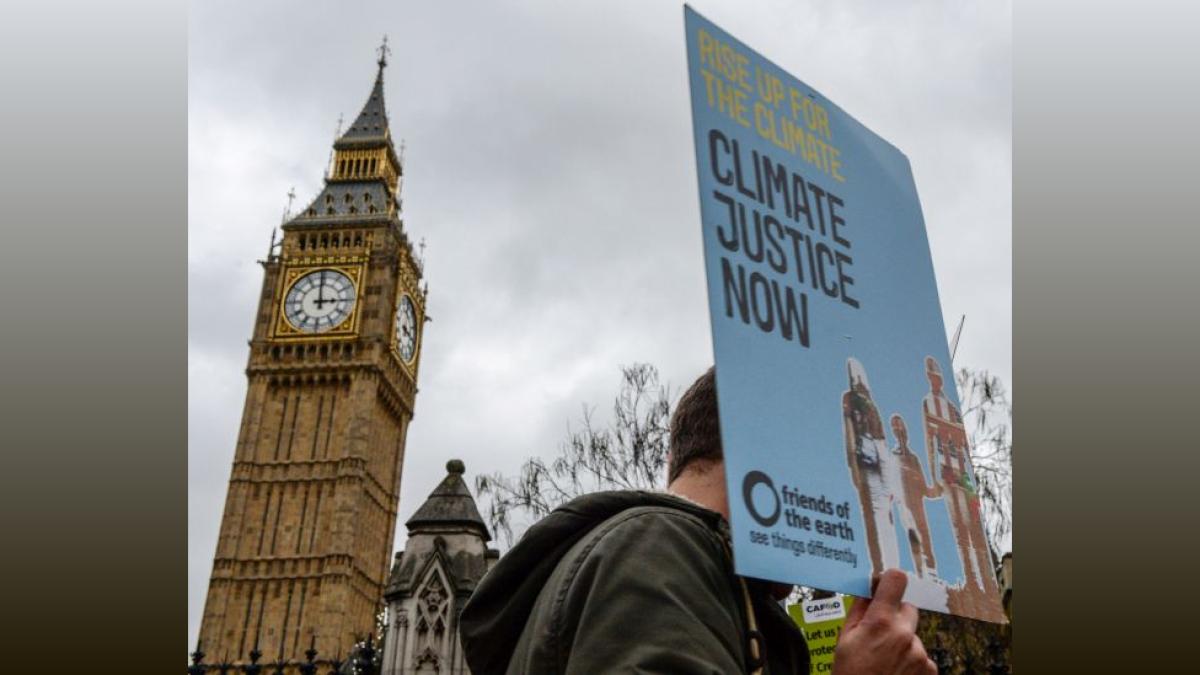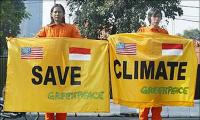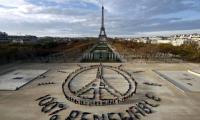COP29: Urgent Call for Climate Finance Agreement
Azerbaijan, hosting COP29, urges nations to urgently resolve differences on a new climate finance goal to aid developing countries combat climate change.

New Delhi, Nov 11 (PTI) Azerbaijan, the host of this year's UN climate conference, called on all countries on Monday to urgently resolve outstanding issues to agree on a new climate finance goal to help developing nations combat and adapt to climate change.
Delivering his remarks at the opening ceremony of the UN summit, COP29 President Mukhtar Babayev said current policies are leading the world towards 3 degrees Celsius of warming, which would be catastrophic for billions of people.
He said that the COP29 Presidency's top priority is to find consensus on a fair and ambitious New Collective Quantified Goal (NCQG), or new climate finance goal, to replace the previous goal of USD 100 billion per year agreed in 2009.
Babayev emphasized that the NCQG must be effective and adequate to address the scale and urgency of the problem.
Negotiations have seen some progress but a lot of work is left, with just 12 days to land the deal. Countries now urgently need to finalise the elements, resolve differences on contributors and quantum and set the new goal, he said.
According to the United Nations Framework Convention on Climate Change (UNFCCC), adopted in 1992, high-income industrialised nations (referred to as Annex II countries) are responsible for providing finance and technology to help developing countries combat and adapt to climate change. These countries include the United States, the UK, Canada, Japan, Australia, New Zealand, and EU member states such as Germany and France.
Some developed countries, led by the EU and the US, argue that the global economic landscape has shifted significantly since 1992. They suggest that nations that have become wealthier since then, like China and some Gulf states, should also contribute to the new climate finance goal.
Developing countries view this as an attempt to shift responsibility from those who have historically benefited from industrialisation and contributed the most to greenhouse gas emissions.
They argue that expecting them to contribute, especially when many are still struggling with poverty and inadequate infrastructure amid worsening climate impacts, undermines the principle of equity.
Babayev acknowledged that the negotiations are complex and challenging, with both political and financial constraints.
He said that while the numbers may sound large, they pale in comparison to the cost of inaction. "Nothing has a greater impact on the security, prosperity and well-being of all nations than climate change," he added.
Delivering his remarks at the opening ceremony of the UN summit, COP29 President Mukhtar Babayev said current policies are leading the world towards 3 degrees Celsius of warming, which would be catastrophic for billions of people.
He said that the COP29 Presidency's top priority is to find consensus on a fair and ambitious New Collective Quantified Goal (NCQG), or new climate finance goal, to replace the previous goal of USD 100 billion per year agreed in 2009.
Babayev emphasized that the NCQG must be effective and adequate to address the scale and urgency of the problem.
Negotiations have seen some progress but a lot of work is left, with just 12 days to land the deal. Countries now urgently need to finalise the elements, resolve differences on contributors and quantum and set the new goal, he said.
According to the United Nations Framework Convention on Climate Change (UNFCCC), adopted in 1992, high-income industrialised nations (referred to as Annex II countries) are responsible for providing finance and technology to help developing countries combat and adapt to climate change. These countries include the United States, the UK, Canada, Japan, Australia, New Zealand, and EU member states such as Germany and France.
Some developed countries, led by the EU and the US, argue that the global economic landscape has shifted significantly since 1992. They suggest that nations that have become wealthier since then, like China and some Gulf states, should also contribute to the new climate finance goal.
Developing countries view this as an attempt to shift responsibility from those who have historically benefited from industrialisation and contributed the most to greenhouse gas emissions.
They argue that expecting them to contribute, especially when many are still struggling with poverty and inadequate infrastructure amid worsening climate impacts, undermines the principle of equity.
Babayev acknowledged that the negotiations are complex and challenging, with both political and financial constraints.
He said that while the numbers may sound large, they pale in comparison to the cost of inaction. "Nothing has a greater impact on the security, prosperity and well-being of all nations than climate change," he added.
You May Like To Read
TODAY'S MOST TRADED COMPANIES
- Company Name
- Price
- Volume
- Vodafone Idea L
- 7.94 ( -1.00)
- 53169786
- GTL Infrastructure
- 1.61 (+ 6.62)
- 32431916
- Spicejet Ltd.
- 53.52 (+ 9.09)
- 18083686
- G G Engineering
- 0.81 ( -3.57)
- 15819052
- Reliance Power L
- 44.37 (+ 1.88)
- 14874542







 © 2025 Rediff.com India Limited. All rights reserved.
© 2025 Rediff.com India Limited. All rights reserved.